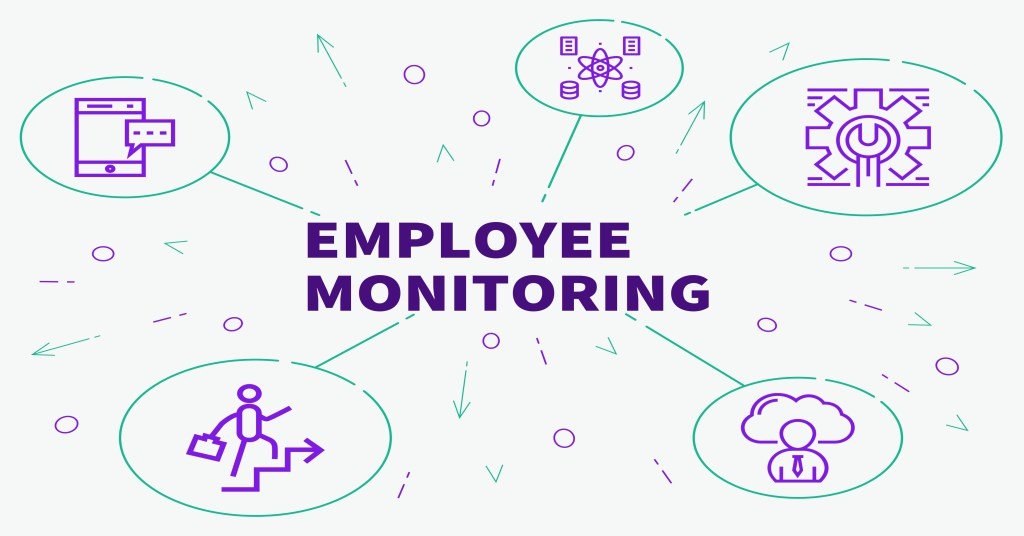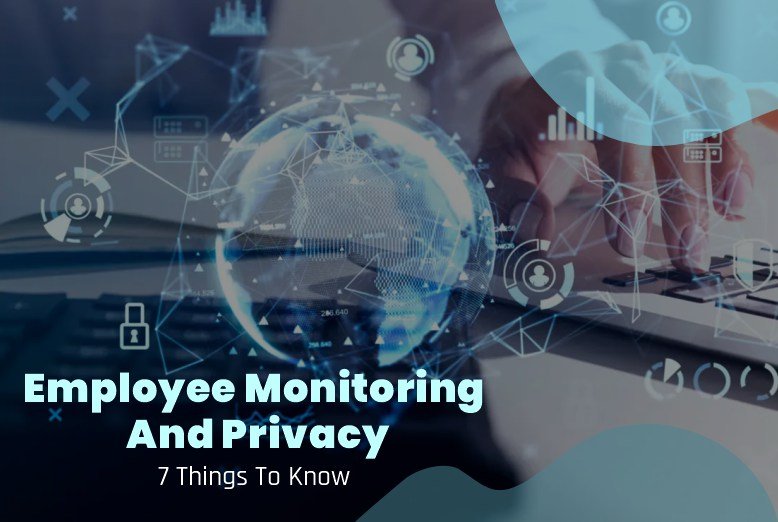Though monitoring employees has grown to be a common practice in today’s workplace, it’s still a contentious subject. Employers, often after sales and profits, monitor employees to track work efficiencies. On the other hand, employees, often after wages and job satisfaction, feel monitoring threatens their privacy and makes them susceptible to discrimination.
For leverage, HR specialists rely on theories. One such theory is the Agency Theory. This assumes that tighter monitoring by employers motivates employees’ efforts. It bases the result on transparency, trust, and loyalty. As long as employers can foster transparent employment relationships, monitoring comes with trust, and job satisfaction comes with loyalty.
But then, several fundamental questions define employee monitoring and privacy. This article answers the major ones.
- What Is Employee Monitoring?

Employee monitoring is the act of monitoring an employee’s work activities using monitoring software. Monitoring software allows companies to keep tabs on their employees’ computer usage and other activities at work. This can include installing keyloggers on employees’ computers to record every keystroke, tracking the websites they visit through online timers, and tracking their locations through a GPS or phone tracker app.
- How Does It Work?
There are two main types of employee monitoring: manual and automated. Manual monitoring requires managers to spend time observing employees. Automated monitoring uses technology to track employees’ actions without having someone watch over them.
Many companies have been using automated employee monitoring. This is due to the rise of work-from-home jobs and cost-effective tools. In fact, it’s common for large corporations to use a combination of manual and automated employee monitoring, especially in a hybrid work environment.
- What Laws Guide It?
Several laws guide how employers should monitor employees without violating their privacy. The Electronic Communications Privacy Act of 1986 is one of the most important. As a federal law, it states that employers can only monitor employees under certain circumstances. Some state laws dispute and regulate this law.
Another important law is the Fourth Amendment. This protects government workers from unlawful searches and seizures by police officers or other government officials. It says that any search or seizure must be done with a probable cause—a judge must approve it first.
Finally, there’s the Internet Privacy Protection Act. This law prohibits employers from observing their employees’ internet accounts. It further ensures employees only grant online access to websites when they know their uses.
- Why Would An Employer Monitor Workers?
Employers monitor employees’ activities due to many reasons. For example, managers might want to track where employees spend most of their time to gauge productivity during certain parts of the day (like before lunch). Managers also may want to track how much time employees spend doing specific tasks to determine which ones are taking longer than expected. They may also want to know if employees are putting in extra hours or working late to ensure they’re getting paid appropriately for them. Finally, they may want to monitor employees to protect confidential business information.
- Can Employers Monitor Their Workers’ Activities Outside Of Work?
Employers can monitor what happens outside of work without violating employee privacy rights. For example, an employer might require all employees to log onto a website using their work computers every day before logging into anything else (like Facebook). But under the National Labor Relations Act (NLRA), employers can’t monitor anything outside of work unless it’s directly related to their business. Besides, workers have the right to know what’s being monitored during and outside work.
- What Happens If Workers Fail To Participate?
Most companies have a policy that requires employees to participate in employee monitoring. However, not all workers know this requirement, and some may feel pressured into participating. If you participate in employee monitoring, you’ll be subject to the company’s employment policies and practices. But if you choose not to, you may be subject to disciplinary action. The disciplinary process may include suspension and termination of your employment.
- What To Know About Workplace Privacy?

Your employers can compromise your personal information. So, you should be aware of your privacy rights and the use of your information. If you think your company is using employee monitoring software, you should ask them why they’re doing this and what information they’re gathering. You can also ask them if they have policies regarding using such software.
If your employer does not have a policy for monitoring employees and their computers, it may be illegal for them to do so without your consent. If your employer has a policy, ensure you understand the information they’re collecting from these devices. Also, ensure you know why they need it before giving it out freely so they won’t monitor it more closely than necessary.
Conclusion
Employee monitoring and privacy can be tricky subjects. On the one hand, employers have a right to protect their company’s assets and ensure that employees do their jobs correctly. On the other hand, employees deserve respect for their privacy and autonomy. While the debate rages on, being familiar with the concept is necessary. Above are seven things you should know, whether you’re an employer or employee.
ALSO READ: 11 Best Work From Home Jobs You Need To Check Out















